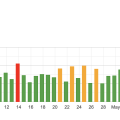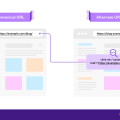Imagine being able to rank at the top of search engine results and drive massive amounts of traffic to your website, all with just a few shady techniques. Sounds too good to be true, right? Well, that’s exactly what black hat SEO is all about.
This article will give you a glimpse into the dark side of the SEO world, where strategies like keyword stuffing, link farms, and cloaking rule the game. But beware, for the allure of these quick wins comes with a price – potential penalties and a tarnished reputation.
So, buckle up and prepare to learn about the not-so-ethical practices that some marketers employ to beat the system.
What is Black Hat SEO?
Definition
Black Hat SEO refers to unethical techniques and strategies used to manipulate search engine rankings. These tactics focus on exploiting loopholes in search engine algorithms in order to achieve higher rankings quickly and artificially. Unlike White Hat SEO, which follows search engine guidelines and focuses on creating high-quality content, Black Hat SEO aims to deceive search engines and users for short-term gains.
Objective
The main objective of Black Hat SEO is to manipulate search engine rankings and boost website visibility by employing tactics that violate search engine guidelines. By using these unethical techniques, websites attempt to gain an unfair advantage over their competitors by artificially inflating their rankings in search engine results.
Examples
There are various examples of Black Hat SEO techniques that webmasters and digital marketers have employed over the years. Some prominent examples include keyword stuffing, hidden text, cloaking, link farming, content automation, doorway pages, and negative SEO. These techniques are aimed at exploiting search engine algorithms to achieve higher rankings, but they come with severe consequences.
Negative Impacts of Black Hat SEO
Search Engine Penalties
One of the most significant negative impacts of Black Hat SEO is the imposition of search engine penalties. When search engines like Google detect websites using unethical tactics to manipulate rankings, they penalize those sites by lowering their rankings or even removing them from search results altogether. These penalties can have a devastating impact on a website’s visibility and organic traffic, leading to a significant loss in potential customers or users.
Loss of Reputation
Engaging in Black Hat SEO techniques can severely damage a website’s reputation and credibility. When users find that a website has used deceptive practices to achieve higher rankings, it undermines their trust in that website and its content. This can lead to a loss of user engagement, decreased loyalty, and ultimately damage the overall reputation of the brand or business associated with the website.
Decreased User Experience
Black Hat SEO techniques often prioritize search engine rankings over user experience. Websites that employ these tactics may use techniques such as hidden text or doorway pages to trick search engines, but these tactics can negatively impact the user experience. When users encounter irrelevant or misleading content or encounter difficult navigation due to Black Hat SEO practices, they are more likely to leave the website and never return. This can result in decreased website traffic, lower conversion rates, and ultimately harm the overall success of the website.

Types of Black Hat SEO Techniques
Keyword Stuffing
Definition
Keyword stuffing is the practice of excessively and unnaturally inserting keywords into a webpage’s content in an attempt to manipulate search engine rankings. This technique involves using an excessive number of keywords or repeating them in an unnatural manner, which can make the content appear spammy and irrelevant.
Techniques
Webmasters employing keyword stuffing may add a large number of unrelated or irrelevant keywords to their webpage’s meta tags, headings, or body content. These keywords often have no relevance to the actual content of the webpage but are chosen solely for their potential to attract search engine traffic.
Consequences
Keyword stuffing can have severe consequences for a website’s rankings and user experience. Search engines have become increasingly sophisticated in detecting this black hat technique, and they often penalize websites that engage in keyword stuffing by lowering their rankings or even removing them from search results. Additionally, users who come across keyword-stuffed content are more likely to view it as spam and may leave the website, resulting in a high bounce rate and decreased user engagement.
Hidden Text
Definition
Hidden text refers to the technique of hiding text on a webpage from users while still making it visible to search engines. This practice is done by using techniques such as setting the text color to match the background color or using very small font sizes.
Techniques
Webmasters may hide text by using CSS techniques to make the text blend with the webpage’s background, making it invisible to users while still being readable by search engines. Another technique is placing hidden text behind images or using interstitials to hide content until certain conditions are met.
Consequences
Search engines consider hidden text as a deceptive practice that manipulates rankings. If search engines detect hidden text on a webpage, they may penalize the website by lowering its rankings or removing it from search results entirely. Additionally, the use of hidden text can negatively impact the user experience, as users may find the hidden content irrelevant or misleading, leading to a loss of trust and engagement.
Cloaking
Definition
Cloaking is the practice of presenting different content to search engines and users. Webmasters using cloaking techniques show search engines optimized content that is different from what users actually see, in an attempt to rank higher for specific keywords and deceive the search engines.
Techniques
Cloaking techniques involve using server-side scripting to detect search engine crawlers and serve them different content than what regular users would see. This can be accomplished by dynamically generating the content based on the user agent or IP address of the visitor.
Consequences
Cloaking is a violation of search engine guidelines and is considered a deceptive practice. When search engines detect cloaking on a website, they may impose penalties that can range from lower rankings to complete removal from search results. Moreover, users who encounter cloaked content may experience confusion or frustration when the content they see is significantly different from what they expected, resulting in a negative user experience and potential loss of trust.
Link Farming
Definition
Link farming involves creating or participating in a network of websites with the sole purpose of artificially boosting rankings through a large number of inbound links. These links often lack relevance or quality and are manipulated solely for the purpose of influencing search engine rankings.
Techniques
Link farming techniques can include creating multiple websites with low-quality content and interconnected links, participating in link exchange schemes, and purchasing or exchanging links from unrelated websites. These tactics aim to manipulate search engines by creating artificial signals of popularity and authority.
Consequences
Search engines consider link farming as a violation of their guidelines and a deceptive practice. Websites engaged in link farming can face penalties such as lower rankings, removal from search results, or even being banned from search engine indexes completely. Additionally, the presence of irrelevant and low-quality inbound links can harm a website’s credibility and potentially expose it to negative user experiences, further impacting its reputation.
Content Automation
Definition
Content automation refers to the process of generating and publishing content automatically, often without human involvement. This practice aims to produce a large volume of content quickly and manipulate search engine rankings by flooding the web with potentially low-quality, keyword-stuffed, or duplicate content.
Techniques
Webmasters may use content automation techniques such as text spinning, article spinning, or web scraping to automatically generate large amounts of content. These automated tools can alter existing content by replacing words or phrases, rearranging sentences, or scraping content from other websites to create new articles.
Consequences
Content automation is viewed as a manipulative technique that aims to deceive search engines and generate more traffic artificially. Search engines actively work to identify and penalize websites engaged in content automation, often by lowering their rankings or removing them from search results. Moreover, the presence of low-quality, automated content can lead to a poor user experience, as users may encounter irrelevant or repetitive information, diminishing their trust in the website.
Doorway Pages
Definition
Doorway pages, also known as bridge pages or portal pages, are web pages specifically created to rank high in search engine results for specific keywords. These pages are often optimized for search engines but have little to no valuable content for users. Instead, they serve as a gateway or entrance to redirect users to other pages within the website.
Techniques
Webmasters may create doorway pages by duplicating content or creating multiple similar pages that target different keywords or locations. These pages often consist of thin or irrelevant content, prioritizing search engine rankings over user value. Doorway pages typically include excessive keyword usage, hidden text, and other black hat SEO techniques.
Consequences
Search engines actively penalize websites that use doorway pages, as they are viewed as manipulative and harmful to user experience. Websites using doorway pages can face consequences such as decreased rankings, removal from search results, or even being banned from search engine indexes. Users who encounter doorway pages often find them frustrating and irrelevant, leading to a negative user experience and potential loss of trust in the website.
Negative SEO
Definition
Negative SEO refers to the use of black hat SEO techniques by competitors or malicious actors to harm a competitor’s website’s rankings and reputation. It involves intentionally creating spammy backlinks, duplicating content, or engaging in other unethical practices to cause search engines to penalize or devalue a targeted website.
Techniques
Negative SEO techniques can include creating a large number of spammy backlinks pointing to a competitor’s website, duplicating and distributing their content, spreading false information about their website, or hacking their website to inject malicious code. These tactics are aimed at damaging the targeted website’s visibility and rankings.
Consequences
Negative SEO can have severe consequences for a targeted website, including decreased rankings, loss of organic traffic, and potentially being penalized or banned by search engines. Moreover, negative SEO attacks can tarnish a website’s reputation and credibility, potentially leading to a loss of customer trust and engagement.
Combating Black Hat SEO
Regular Website Audits
Regular website audits are essential to identify and address any Black Hat SEO techniques that may have been inadvertently or maliciously employed. By conducting comprehensive audits, webmasters can identify any suspicious activity, such as hidden text or keyword stuffing, and take immediate action to rectify the issue.
Quality Content Creation
Creating high-quality, valuable, and relevant content is a fundamental strategy for combating Black Hat SEO. By focusing on providing users with valuable information and engaging content, webmasters can attract organic, legitimate traffic and build a reputable online presence.
Backlink Analysis
Regularly analyzing and monitoring a website’s backlink profile is essential for identifying any malicious or spammy backlinks that may have been created as part of a negative SEO attack. Webmasters can disavow these toxic backlinks to prevent search engines from associating them with their website.
Monitoring Search Engine Guidelines
Staying up to date with search engine guidelines and following best practices is crucial in combating Black Hat SEO. Webmasters should familiarize themselves with search engine algorithms and guidelines to ensure their website complies with ethical practices and avoids penalties.
Educating Webmasters
Educating webmasters and digital marketers about the risks and consequences of Black Hat SEO is essential for preventing the use of unethical techniques. By promoting awareness and providing training on proper SEO practices, webmasters can ensure the industry as a whole moves towards ethical and sustainable strategies.
In conclusion, Black Hat SEO techniques aim to manipulate search engine rankings through unethical practices. However, the consequences of engaging in these practices can be severe, including search engine penalties, loss of reputation, and decreased user experience. It is crucial for webmasters and digital marketers to understand and avoid these techniques to maintain a reputable online presence. By focusing on ethical SEO practices, such as quality content creation and regular website audits, businesses can achieve long-term success while maintaining their credibility and user trust.











